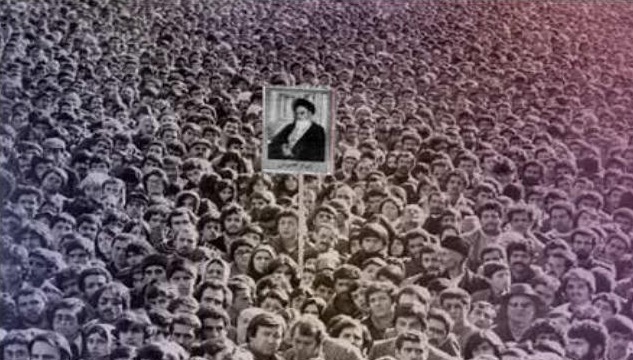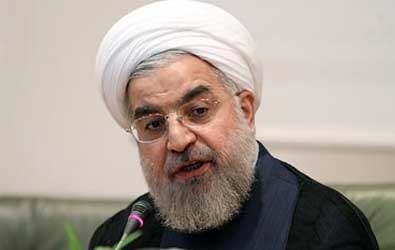Iran is aware of the United States’ need to hold direct meetings with it and conclude a bilateral settlement agreement, but it believes that hurried steps might be a free trump for America.
Ali Obadi
Iran is aware of the United States’ need to hold direct meetings with it and conclude a bilateral settlement agreement, but it believes that hurried steps might be a free trump for America.
Iran is also aware that Washington will spare no effort to destroy the internal immunity against the US Policies and it could seek to propose public relations initiatives to improve its negotiating position on the account of Iran.
There is a new international atmosphere heading towards a quick solution to the Iranian nuclear file which has taken years of negotiations, but unveiling intentions lie in the details!
Negotiations on the Iranian nuclear file will not be easy and fast under the conditions and counter conditions by Washington and Tehran, at time when the United States’ strategy is still based on subduing the Islamic Republic by the sword of economic sanctions and time factor, while Iranian officials consider that rushing into negotiations and concluding a settlement within a maximum of one year is a basic measure for judging the seriousness of the other part.
Moreover, the latest unprecedented indicators that have appeared in New York inform about negotiations of a different type, but the American and Iranian sides’ opposing bases will dominate the course of talks, especially under the failed historical experiences, absence of trust, and the disparity of positions on regional policies in the Middle East.
A History of Failed Attempts
When US National Security Advisor, Robert McFarlane landed in Tehran in 1986, in a secret adventure aimed to build relations with the Islamic Republic, carrying a “gift” represented by a series of “Tow” anti- tank missiles, the “Irangate scandal” erupted to expose a US rush to find a relation with Tehran the revolution which toppled the pro-US regime and its “Policeman in the Gulf” in 1979.
 The Americans failed to learn lessons out of this experience which ended McFarlane’s political life and almost toppled President Ronald Reagan who denied knowing anything about the issue, sacrificing General Oliver North as a scapegoat in this case. It took Washington years later to make another attempt to approach Iran after recognizing the importance of subjugating this key regional player which has capacities and geostrategic characteristics unique within its Islamic revolutionary regime.
The Americans failed to learn lessons out of this experience which ended McFarlane’s political life and almost toppled President Ronald Reagan who denied knowing anything about the issue, sacrificing General Oliver North as a scapegoat in this case. It took Washington years later to make another attempt to approach Iran after recognizing the importance of subjugating this key regional player which has capacities and geostrategic characteristics unique within its Islamic revolutionary regime.
Additionally, when the American forces occupied Afghanistan in 2001 then Iraq in 2003, Washington had in mind that Tehran would rush to repair its relation with this new “neighbor” on its eastern and western borders. However, Tehran was betting that the US will drown in the region, considering it a chance to weaken its gained strategic position.
In a short time, America began seeking Tehran’s “cooperation” to solve the problem, so the American and Iranian ambassadors, Ryan Crocker and Hasan Kazemi Qumi met in Baghdad in 2007, and just in one meeting the American knew that the Iranian was not at hand and that it was wearing and patient in its dialogue.
Later on, the American side started examining the Iranian side’s willingness to build bilateral relations by trying to arrange a meeting between both chiefs of delegations to the P5+1 with Iran. However, US Deputy Secretary of State, William Burns, failed to convince Iranian delegation chief, Saeed Jalili, to hold such a meeting. The attempt reoccurred vainly in another session.
Breaking Barrier of Resistance
With the developments in the Syrian crisis and the US back down on its military strike, an international door of negotiations was opened, based on Washington’s estimation that Iran could be a key player in the Geneva conference on Syria, after the US Administration used to oppose this issue under the justification that Iran was “part of the problem not part of the solution”.
Today, the US and Western approaches on this issue had changed and the dominant talk –amid the current balance of power- became that negotiation is the major way to solve crises and critical issues in the region. Moreover, the US Administration had received Iranian President Sheikh Hasan Rouhani’s signs on readiness to settle the Iranian nuclear file and cooperate on finding solutions to the regional issues, so it worked on drawing a new strategy for dealing with the very complicated situation in the Middle East, based on tactical gains which would lead to a strategic victory if piled up.
 In parallel, US President Barack Obama’s Administration has raised its interest in breaking through the Iranian course and intended to send prior signals to Tehran like “not excluding” a direct meeting between the US president and his Iranian counterpart on the edge of the work of the UN General Assembly.
In parallel, US President Barack Obama’s Administration has raised its interest in breaking through the Iranian course and intended to send prior signals to Tehran like “not excluding” a direct meeting between the US president and his Iranian counterpart on the edge of the work of the UN General Assembly.
In that lies an open diplomatic method for suggesting a bilateral meeting, but the Iranian side was aware that such a meeting would be a mere US achievement which would affect its negotiating position and open the door on dispute in Iran on the wisdom behind a step which would destroy Iran’s “immunity” against the United States, and portray Iran as if rushing to find a solution, any solution.
Obama’s assignment of his secretary of state to attend the P5+1 meeting with Iran in New York was another sign of the US desire to increase the level of a near direct meeting with Tehran. Even after it was clear that the two presidents’ meeting was difficult due to "time constraints", as president Rouhani said, the US president kept trying to open a high-leveled channel of communication by talking to Rouhani, even if it was via the phone of the Iranian ambassador to the United Nations.
What was important for the American side was not what would be said during the phone call, but creating a split inside Iran and breaking the barrier of resistance, and this is a gain by itself. The Americans could see in any internal Iranian dispute over how to manage the nuclear file, a chance to inflame this dispute by proposing lures and making speeches about public relations, like the one Obama addressed the Iranians with on Nowruz holiday four years ago.
From Iran’s point of view, Internal unity is considered the most significant point of strength in the Islamic regime’s stance. Therefore, one of the scenarios excepted from the US continuous attempts is creating a gap in the Iranian stance by rifting the internal rank which was built and molded on opposing “global arrogance” and the American in specific.
In addition, there is another point related to the Islamic Republic of Iran’s leading position on the regional level, which is an issue it is highly aware that it cannot neglect, as the eyes are on Iran, and it is negotiating with pride and power, without abandoning its bases or allies. Moreover, it has proven over the long years that it is loyal to its allies and that it addresses their causes globally without any weariness.
A New Negotiating Atmosphere
But do direct meetings and negotiations mean that the high wall of enmity between Tehran and Washington would collapse soon?
The answer is not simple, but we must remember the fact that the fixed US goal is to contain Iran and other rising powers, and sanctions are a major weapon in the hand of the United States to achieve this goal.
For its part, Iran will not settle for a little in any settlement agreement, as it speaks in a high but studied tone in its efforts to dismantle the chains of sanctions imposed on it in the past years. Therefore, we see it stressing its adherence to its nuclear rights and reiterating its basic stances on the level of foreign policy, specifically its stance from the Palestinian cause.
 So, it is a conflict between two parts that will not be able to solve all the controversial issues as long as Washington still deals with Iran as a third world country which would give up everything in order for sanctions to be lifted.
So, it is a conflict between two parts that will not be able to solve all the controversial issues as long as Washington still deals with Iran as a third world country which would give up everything in order for sanctions to be lifted.
It is true that there are some voices in Iran which call for openness on the West based on the slogan “Iran first”, but these voices are isolated and are not effective enough to change the course which the country is moving in. Moreover, the Islamic Republic’s leadership is acting on the bases that things are moving for its benefit on different levels, and that the international approach is moving in contrary to the US vision.
Despite that, the nuclear file in specific will not be solved soon as long as a direct agreement between Washington and Tehran is absent. Mohammad Al-Baradei had expressed, when he was still Director General of the International Atomic Energy Agency, his certainty in that during a visit to Tehran. Moreover, there is a new international atmosphere which indicates that the situation is all set for the two parts to discuss this file without prior conditions on the bases of recognizing the importance of taking new steps; in that lies international public interest, especially with the increasing certainty that the Middle East should be empty of nuclear weapons (this of course disturbs Israel) and that the peaceful nuclear power should be treated with much concern and cautiousness.
Once again, these negotiations will not be easy regarding the nuclear issue, because the Americans will engage themselves in details after Israel pushes them into that. As for the Iranians, they are not of less interest in details, and they are the ones who exhausted negotiators from six major countries in the long sessions, until a Western diplomat once said that if you agree on buying a table from the Iranians, you have to negotiate with them twice: Once on making the table and once on making its legs!
Translated by Sara Taha Moughnieh